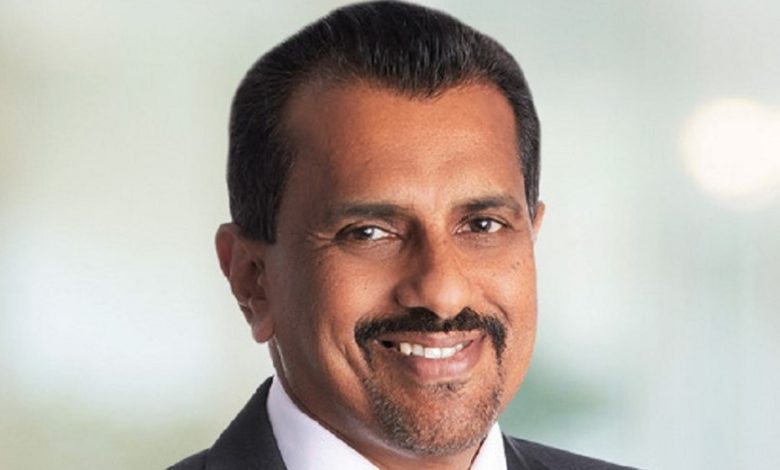AET Tankers: Not sitting on the sidelines

Energy transition plays, decarbonisation of shipping, industry collaboration, a stronger focus on smart shipping and the ability to attract and retain talent have been identified as key to AET Tankers’ future strategy.
Captain Rajalingam Subramaniam is president and CEO of the Singapore-headquartered wholly owned petroleum shipping subsidiary of Malaysian energy logistics group, MISC and is driving the asset renewal and sustainability focus.
Known in the industry as Captain Raja, he trusts that all participants must partner and work together towards a common goal – creating a truly sustainable and decarbonised global trade network in an appropriate timeframe.
“Technology and data must be shared for the good of everyone, and true partnerships must be developed to ensure the benefits and synergies of decarbonisation and sustainability are realised across the global logistics network. We all need to play our part now and not wait until the last possible moment,” Capt Raja says.
He began his career at sea, came ashore in 1996, and has since held various positions in the MISC group.
Speaking to Maritime CEO, Capt Raja sees some positive signals in the tanker sector in H2 2021 and into 2022, coming from a reduction in overall tonnage, an improving demand profile, a gradual increase in production and enhanced refinery utilisation.
Ever since he took over AET in 2016, he has led the acceleration of the company’s energy transition scheme and the adaptation of dual-fuel for many of its newbuilds. Partnering with energy majors who share a common decarbonisation vision, shipyards, equipment manufacturers, financial institutions, class societies, and other maritime stakeholders have also contributed significantly to this journey.
“We do not believe in sitting on the sidelines but acting now and not later to contribute to a resilient maritime industry with a holistic and purposeful adoption of our sustainability agenda across all ESG components, including financial sustainability.” Capt Raja remarks.
AET is an early adopter of dual-fuel solutions and has seen deliveries in 2020 and early 2021 of seven eco-efficient DPSTs. The company currently owns and operates more than 60 tankers and has an orderbook of 11 vessels with deliveries stretching between 2022 and 2023, all fixed on long-term contracts.
“With our newbuild programme, we will further modernise our fleet with cleaner and greener solutions and strengthen our financial sustainability pillar.”
For Capt Raja, looking farther ahead, a longer-term solution for decarbonisation sees multiple pathways and AET will select the most effective long-term solution for zero carbon vessels. “Being an early adopter comes with risks, but we were early adopters of dual-fuel technology and we have built the experience to manage those risks.”
Capt Raja tells Maritime CEO he supports a carbon tax centrally coordinated and equitably proportioned to users of the products and services, and believes that revenues raised from the carbon tax must be reinvested into further maritime research and development to advance low-carbon.
He also believes that additional collaboration is needed with the wider stakeholder grouping of financiers to see more support with better differentiators and incentives for owners to adopt solutions that are more ESG orientated. “I would like to see more support for truly cleaner and greener maritime solutions in all asset classes and the financing margins should be sustainability linked to pivoting the behaviour of our industry colleagues in the right direction.” Capt Raja says.
Underpinning the entire logistics network will be the recruitment, retention, and diversity of great talent. “We need to attract and retain a workforce for tomorrow’s needs that is increasingly driven by purpose and ESG goals. Our people must be encouraged to invest in our future and recognise that they too are vital stakeholders and partners.”
Going forward Capt Raja plans to focus on growing AET’s asset portfolio in a balanced manner, so AET continues to support the needs of the energy market and capitalise on energy transition opportunities.

CLIMATE CHANGE & GLOBAL WARMING
It is not sufficient to just control GHG emissions. There are other factors contributing to climate change and rise in the temperature of Planet Earth that must be considered. The measures planned by country heads and other organizations need to be reinforced.
These are my recommendations on a “War Footing” if we are to save this Planet –
1. Stop developments of all new cities, towns globally within next 1 year.
2. Stop the use of all fossil fuels within next 1 year.
3. Covert all motor vehicles, motor/steam vessels, aircrafts to LNG/LPG/Electric.
4. Stop all Coal Fired Power plants and convert to LNG/LPG within next 1 year.
5. Increase planting of trees on whatever land available for agriculture/horticulture purposes – in all countries.
6. Stop logging operations in all countries – no trees to be cut for any purpose.
7. Start building embankments in all low lying cities that will be affected by rise in sea level.
8. Stop exploration, drilling, production and refining of all fossil fuels.
9. Enhance and support Gas Exploration, production, storage, regasification and distribution.
10. Construct “Cold Ironing” in all major Ports of the World.
11. Construct and increase LNG/LPG stations in all ports, cities of the World.
12. Commence using deserts for growing more Trees.
13. Construct and install CO2 absorbers in all major cities and Towns.
Above points are broadly written and can be provided in more detail if requested. All above points are to be adopted by all countries of this World.